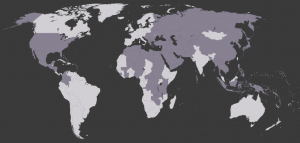Fast PACE: Quick analysis of current and ongoing crises around the globe
Bangladesh: A Rigged Election
Update: 9:00 15 January 2019
In polls on December 30, Sheikh Hasina of Bangladesh and her Awami League party and its Grand Alliance partners took 288 constituencies, leaving just 8 so far for an opposition coalition that has been battered by her increasing repression. While Hasina rejected allegations of rigging, the developments bode ill for Bangladesh, which through 50 years of turmoil has remained committed to the idea of democracy.
Why It’s Important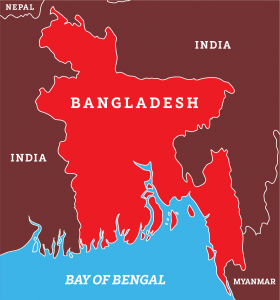
Bangladesh’s Sheikh Hasina consolidates her grip on power in heavily rigged elections.
Her near clean sweep means she is likely to continue a program of undermining independent institutions and the media.
Economic growth has been high and sustained for the past decade but inequality is worsening.
The overall risk is eventual pushback from a population that has shown a willingness to take to the streets with demands for improved governance.
The full analysis can be read here or downloaded as a PDF here.
Guatemala: President Morales’ Escalating Confrontation with CICIG
Update: 22:00 10 January 2019
During her January 7 meeting with UN Secretary-General António Guterres, Guatemalan Foreign Minister Sandra Jovel gave international staff of the International Commission Against Impunity in Guatemala (known by its Spanish acronym CICIG) 24 hours to leave the country. On the heels of the Foreign Minister’s announcement and citing myriad risks to Guatemala’s national interest and security, President Jimmy Morales declared his unilateral decision to withdraw from CICIG’s founding agreement and expel the body. The move, which hobbles the ability of the UN-backed anti-corruption commission to operate in the country, is a major setback for efforts to address impunity and corruption.
Why It’s Important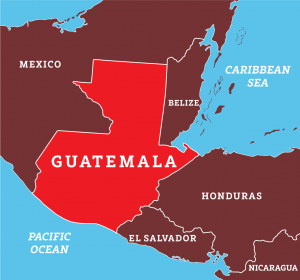
On January 7, Guatemala’s President Jimmy Morales made a unilateral decision to expel CICIG – a UN backed anti-corruption body – from the country.
Mandated to investigate and prosecute corruption and organized crime, CICIG has opened investigations against the President’s brother and son on corruption charges – and against Morales himself – for illicit financing of his presidential campaign.
The Constitutional Court has ruled the President’s decision illegal but is being challenged by Congress, which has initiated a process to remove judges seen to view CICIG favorably.
While tensions have often surfaced between the Guatemalan government and CICIG, these developments are the most consequential to date.
The full analysis can be read here or downloaded as a PDF here.
Armenian Elections: A Landslide Win for the Opposition
Update: 9:00 13 December 2018
Armenia’s recent snap parliamentary elections jettisoned the longtime ruling party from Parliament and propelled maverick journalist-turned-politician and acting Prime Minister Nikol Pashinyan’s My Step bloc to a super majority. Pashinyan vigorously campaigned on tackling corruption and offered somewhat controversial views on Armenia’s three-decade conflict with Azerbaijan. This has upended politics in Armenia, and the election results may have significant domestic and regional implications.
Why It’s Important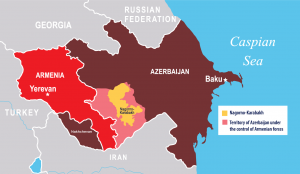
Acting Prime Minister Nikol Pashinyan, who spearheaded Armenia’s April 2018 “Velvet Revolution”, won a landslide election victory and earned a parliamentary supermajority for his My Step bloc.
Pashinyan’s somewhat controversial public statements on Armenia’s unresolved conflict with Azerbaijan over Nagorno-Karabakh could help foster rapprochement.
Following a vigorous anti-corruption-focused campaign, Pashinyan is poised to confront entrenched interests and dynamics that have stymied Armenia’s economic development.
The full analysis can be read here or downloaded as a PDF here.
GEORGIA PRESIDENTIAL ELECTIONS: DEMOCRATIC CREDENTIALS TAKE A HIT
Update: 16:00 5 December 2018
On 28 November, Salome Zurabishvili, the ruling-party Georgian Dream-backed candidate, was declared the winner of a controversial presidential run-off election. Zurabishvili, a former foreign minister, won 59 percent of the vote against (another) former foreign minister, Grigol Vashadze of the United National Movement who secured 41 percent of the vote. The election was initially considered an inconsequential affair: the President’s authority was sharply reduced under a 2012 referendum and most significant (official) powers are wielded by the prime minister. Unofficially, and perhaps more notably, significant influence and power remains in the hands of the country’s “informal leader”, billionaire and Georgian Dream founder Bidzina Ivanishvili. Without his support, any major political maneuvers or appointments are considered impossible.
Why It’s Important
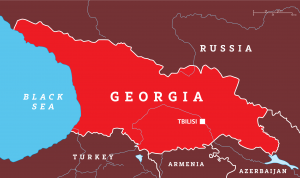 The victory of Georgian Dream-party candidate Salome Zurabishvili in a controversial presidential runoff election effectively consolidates the de facto authority of billionaire Bidzina Ivanishvili across all branches of government.
The victory of Georgian Dream-party candidate Salome Zurabishvili in a controversial presidential runoff election effectively consolidates the de facto authority of billionaire Bidzina Ivanishvili across all branches of government.
International election observers highlighted serious deficiencies and the country’s democratic credentials have taken a hit.
Though post-election protests have remained peaceful, prospects for political turbulence exist: the opposition is calling for annulment of the results, early legislative elections and proportional representation in Parliament.
Despite recent conciliatory gestures, any significant rapprochement with Russia remains highly unlikely at the present time.
The full analysis can be read here or downloaded as a PDF here.
UKRAINE-RUSSIA: HOSTILITIES AT A NEW AND DANGEROUS STAGE
Updated: 15:00 27 November 2018
On 25 November, Russia dramatically upped the ante in its undeclared war with Ukraine, capturing three Ukrainian tugboat-type naval vessels in the Sea of Azov, detaining 23 Ukrainian sailors, and blocking access to one of Ukraine’s major seaport cities, Mariupol. The events, in which Ukraine alleges Russian vessels opened fire, pose the specter of a larger, more openly declared war in a conflict that has killed more than 10,300 since April 2014.
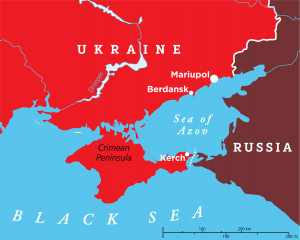
Why It’s Important
With this maritime incident, a threshold has been crossed and the prospect that events will remain a fleeting, short-term crisis fades with each passing day.
Located near the front lines of the armed conflict between Ukrainian regulars and Moscow-supported Russians separatists, loss of access to Mariupol (and the nearby port of Berdansk), would be catastrophic to Ukraine’s struggling economy.
The events mark the first time Russia has openly admitted a direct conflict with regular Ukrainian forces. Since the 2014 annexation of Crimea, Russia has consistently — and in the face of repeatedly documented evidence — said that forces fighting in Eastern Ukraine were simply locals fighting for self-determination, or aided by Russian “volunteers”.
This full analysis can be read here downloaded as a PDF here.

